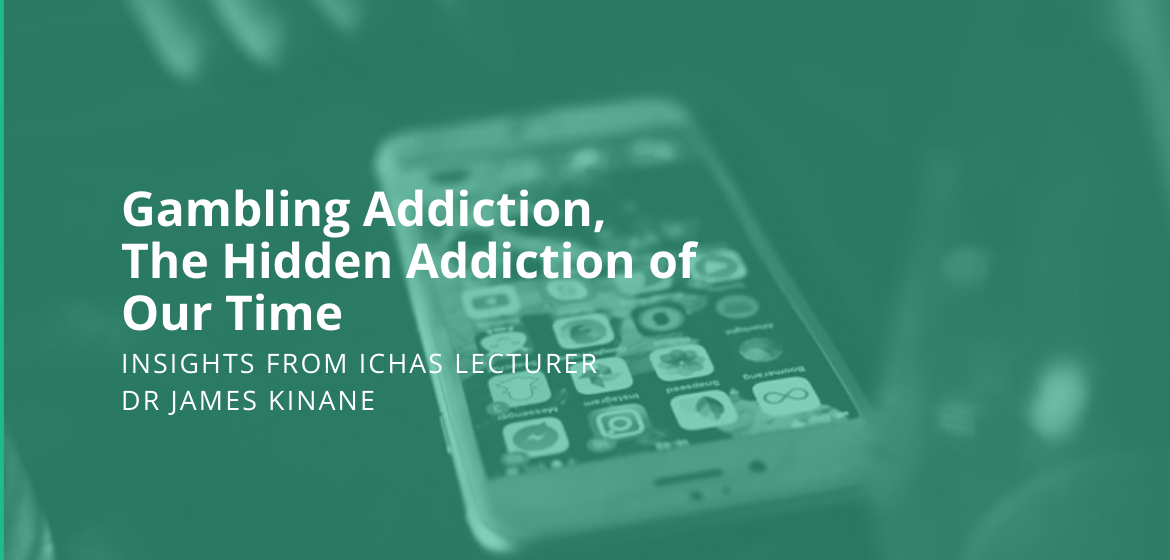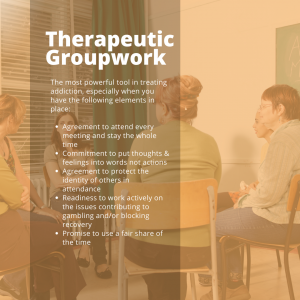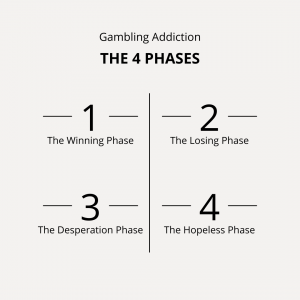
Gambling Addiction, The Hidden Addiction of our Time
Gambling addiction has been on the news a lot recently. From the discussions around sponsorship to recent court cases of firms not really caring about problem gamblers, there has been a bigger focus on this area of addiction. But what is being done to help tackle this addiction?
We talked recently with ICHAS Lecturer Dr. James Kinane around the topic plus the steps (or lack thereof) that are being taken to help educate people more about it and help reduce its impact. Ireland has a long way to go from a mindset perspective alone.
Gambling Starts at a Very Young Age
Gambling begins before the age of 10 years of age. That’s radically different from the other addictions of drugs and drinking. A lot of this has to do with the advances in smartphone technology. Parents have given the kids a phone at this age.
They have access to free apps from gambling associations, they avail of that, they do well with that then they start looking for their pocket money and their change. As a result 1 in 10 people are addicted to gambling. Only 14% of compulsive gamblers begin after the age of 19.
For gambling companies, it’s a number game. In terms of marketing, they have it worked out in terms of betting and gambling how many people will bet. They work on the law of averages.
How Environment Impacts Gambling
When you dig down, gamblers report having parents or other family members who gamble or who have gambling behaviour. 20% of people play the lottery but most people instead bet on horses, football etc. There’s also the big challenge of spotting gambling. You can see someone going into a bookies but you can’t spot someone using an app or for example an old lady goes to bingo 7 nights a week (this is compulsive gambling). You couldn’t tell the neighbours about this as they would shrug it off, but she is a compulsive gambler.
The mindset isn’t there to challenge this. It isn’t even there to challenge young people at the beginning stages of it. There’s a higher rate of addiction in this group due to their immaturity and their brainwork isn’t developed. As a result they’re more susceptible. They generally begin to start gambling around 8-11 years of age.
Gambling Addiction and Links to other Addictions
When it comes to gambling other addictions are also linked (internet & porn addiction). There’s an overlap between them and it increases impulsiveness. Again this is linked with the advances in technology. It doesn’t stop with gambling, a third of problem gamblers also have a substance addiction problem. When they present in treatment it’s often the case that their substance addiction is often very well dressed up, with the gambler who has an alcohol addiction they will be well dressed and presented (contrast of the classic stereotype).
Gambling addicts also have an addiction to cocaine. 15% have a drug use disorder and 70% of gamblers are daily cigarette smokers.
People with a gambling problem are 15 times more likely to take their own life. 26% of adult/adolescent compulsive gamblers have also attempted suicide.
Compulsive gambling is also the most expensive addiction. The debts related to gambling addiction are also phenomenal. In the US 23 million Americans go into debt because of gambling and the average loss is estimated to be around $55,000.
Over time, compulsive gamblers report changes in their motivation for gambling. Initially, it is about winning and the thrill that goes with the high. Over time, the greater importance shifts to increasing emphasis on the PROCESS of gambling. There comes a stage in the gambling process where it isn’t the money, it’s the buzz. The number is irrelevant. In the old days when you had the physical bookies and they closed at 6 that was that, now through smartphones gambling can be done 24/7.
 Gambling and Depression
Gambling and Depression
The average depression in addiction varies from 33 to 76%. A recent study has found that people with a gambling problem were twice as likely to be depressed and 18 times more likely to experience severe psychological distress than people without a gambling problem. Another study (Bland Newman, Wieczorek, et al in 1993) found that 13.3% of compulsive gamblers had attempted suicide.
They also have a higher rate of divorce and trauma. These occur before the onset of depression linked to gambling.
They have overlapping issues in relation to their lifestyle. It affects their system faster. With gambling, it’s a fast-moving addiction (often as short as a race). The race stops, the game is over, then the depression kicks in.
The family are generally the last to also find out. Compared to alcoholism where their family will have known for a long time with gambling they may have just found out (unpaid bills, mortgage in arrears). The partner will also feel totally betrayed. Gambling addiction can be hidden.
What is being done to help counter gambling addiction and educate people?
In Ireland, the main legislation is the 1956 gambling act. As you can see it’s well-dated and hasn’t kept up with the time. Nobody has tackled it yet which is why the training of counsellors is crucial. Spreading awareness of this addiction is crucial. A parent can keep their children away from drink and drugs but through their phones they could be getting access to their gambling sites and apps.
Ireland has a long way to go in terms of awareness and changing mindsets. We have very poor awareness of the effects of gambling. Gambling addiction has a huge huge impact as it is the most secretive of all addictions. It is also the most silent of all addictions. Externally it could seem like you’re working all day when in fact you’re spending the day backing horses.
The marketing around gambling (just look at the average football game) has made it seem that having a bet is as integral a part of the event as anything else. The goal of this from the gambling firms perspective is to take people into compulsion and then into addiction.
Gambling Addiction is only beginning to be addressed now. From a mindset and legislative perspective, Ireland has a long way to go.
 About Dr James Kinane
About Dr James Kinane
James is a graduate of ICHAS and is a lecturer in undergraduate and graduate programmes in addiction and supervision. James has been working in the adult education sector in UK and USA for over twenty years. He holds a BA in psychology and philosophy and MA in clinical supervision and applied practice.
Why not learn more about our B.A. (Hons) in Counselling & Psychotherapy with Addiction Studies and our M.A. in Addiction Counselling today.


























